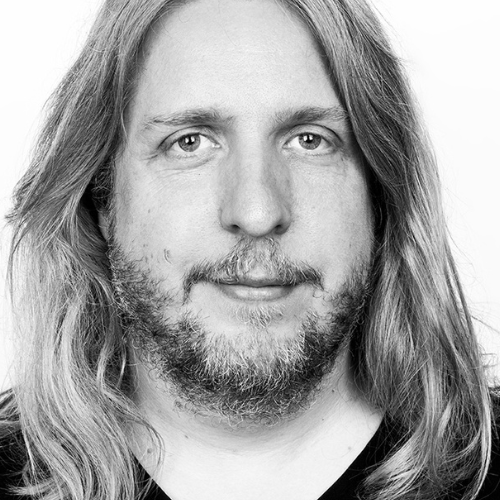
Meet the Expert: Dr Howard Burdett
Welcome to 'Meet the Expert', our series bringing you informative interviews with Armed Forces researchers, policy makers and service providers. Read on to learn about current work, aspirations for progress and future work, and insights into expert perspectives on key issues impacting ex-Service personnel and their families.
 In this issue, we interviewed Dr Howard Burdett, Research Fellow at the King’s Centre for Military Health Research. Howard's research focuses on socioeconomic trajectories from in-Service to post-Service life of UK military personnel, and the long-term socioeconomic and well-being consequences of battlefield injury and associated recovery.
In this issue, we interviewed Dr Howard Burdett, Research Fellow at the King’s Centre for Military Health Research. Howard's research focuses on socioeconomic trajectories from in-Service to post-Service life of UK military personnel, and the long-term socioeconomic and well-being consequences of battlefield injury and associated recovery.
1. Please tell us about your background and how you came to be involved in work relating to the Armed Forces Community.
I was initially a biochemist but chose to leave the lab to pursue more community-oriented science. After a stint as a Research Assistant with the Academic Department of Military Mental Health ADMMH (then ACDMH), I took a role in the then-Surgeon General’s Department before returning to King's College London to undertake a PhD on transition and resettlement jointly with King's Centre for Military Health Research KCMHR and the War Studies Department. Following that I have stayed on to continue my research with the Armed Forces community, including work on the Serving community, Armed Forces families, and the ex-Service population.
2. What research projects are you currently working on, and how do they fit into the bigger picture of understanding and supporting the Armed Forces Community?
My main study is the ADVANCE-INVEST study, looking at the impact of battlefield injury on the transition to civilian life. Additionally, I have been working on the VOICES study in collaboration with the Imperial War Museums, gathering perceptions and insights about the withdrawal from Afghanistan. I am also involved in other projects, including the KCMHR Health and Wellbeing cohort. These studies generally cover a wide range of well-being outcomes, including employment outcomes. They are designed to provide a wide range of findings and implications for the general well-being of the Armed Forces Community, in particular ex-Service personnel.
3. What other research or policy areas relating to the Armed Forces Community are you especially passionate about or feel need further attention? Please expand on this and tell us about them, as much as you can.
True life-course research is rare in the case of UK Armed Forces personnel, with most research beginning during or after Service. Longitudinal studies which begin at recruitment and continue into the Veteran phase would help elucidate both positive and negative impacts of Service relative to the start of Service. Other than that, the impact on families, while an expanding area, still needs considerable attention.
4. What are your future aspirations for the impact and utilization of your work/research?
I hope to introduce new measures and expand knowledge of well-being in the Veteran space, and how it is affected by positive and negative experiences in Service.
5. What do you think are the key challenges impacting current Veterans and their families, and how do you think research and/or policy can be best used to address them?
Current Veterans and their families experience all the current economic challenges of the civilian world, with the additional complexities of transition to civilian approaches to the labour market and the world of work. They and their families may also be navigating a geographical transition at the same time. Between resettlement provision, government services, and Forces charities, a great deal of support exists. Still, it is difficult to produce a joined-up approach to directing Veterans and their families to the best source of aid. Research can help elucidate which needs and risk factors could best benefit from support and facilitate policy to help close this gap.
6. What do you think will be the leading challenges for the next generation of Veterans, and how do you think research and/or policy can be best used to address them?
Along with the challenges of military to civilian transition and the current labour market, a rising challenge for the future will be an increase in the military-civilian gap. Additional research on how this impacts ex-Service personnel’s transition and how best to adapt transition to these changes will be essential.
7. Can you tell us about the methods you tend to use in your research, and why you gravitate towards these approaches?
Coming from a hard sciences background, I am naturally most comfortable using quantitative (statistical approaches) to test the truth or fallacy of specific hypotheses. Nonetheless, I have also found qualitative research to be an essential counterpart, providing context and potential explanations when interpreting statistical findings and facilitating insight into potential causative factors.
8. Given unlimited funding and time, what would be your dream piece of research to undertake involving the Armed Forces community?
A longitudinal cohort of Armed Forces joiners and a legitimate control group of comparators who did not join. This would follow both group's well-being and socioeconomic journeys throughout their life course.
Many thanks to Dr Howard Burdett for sharing his insights.
Catch us next month for another interesting and informative interview with an expert from the Armed Forces Community.